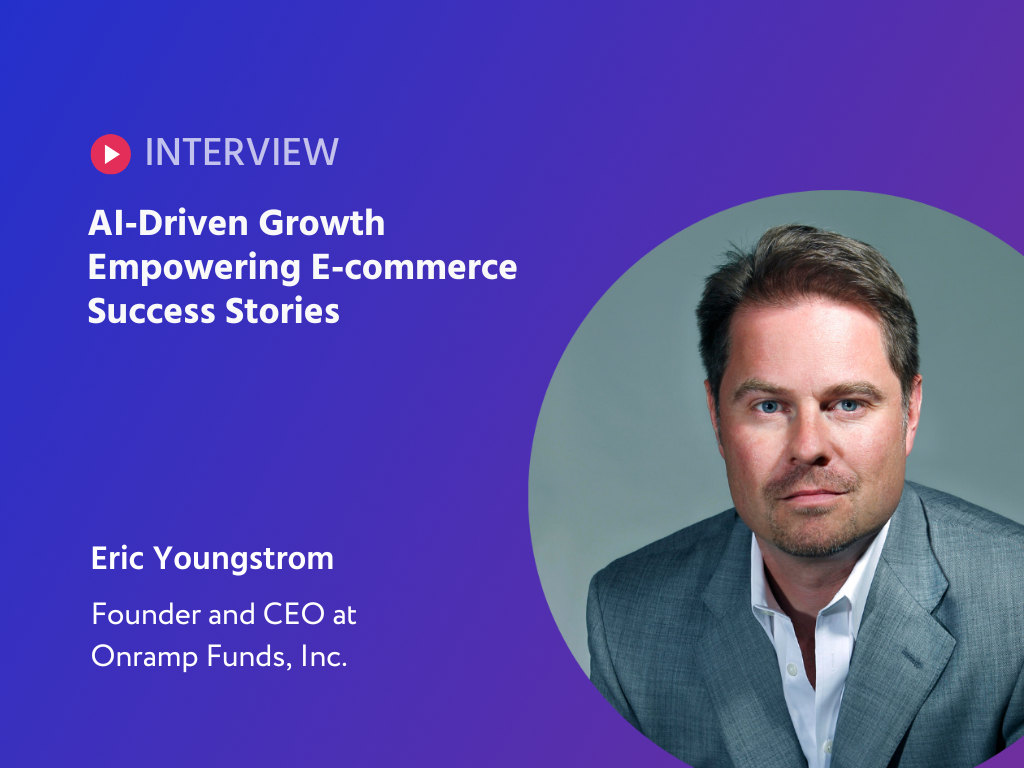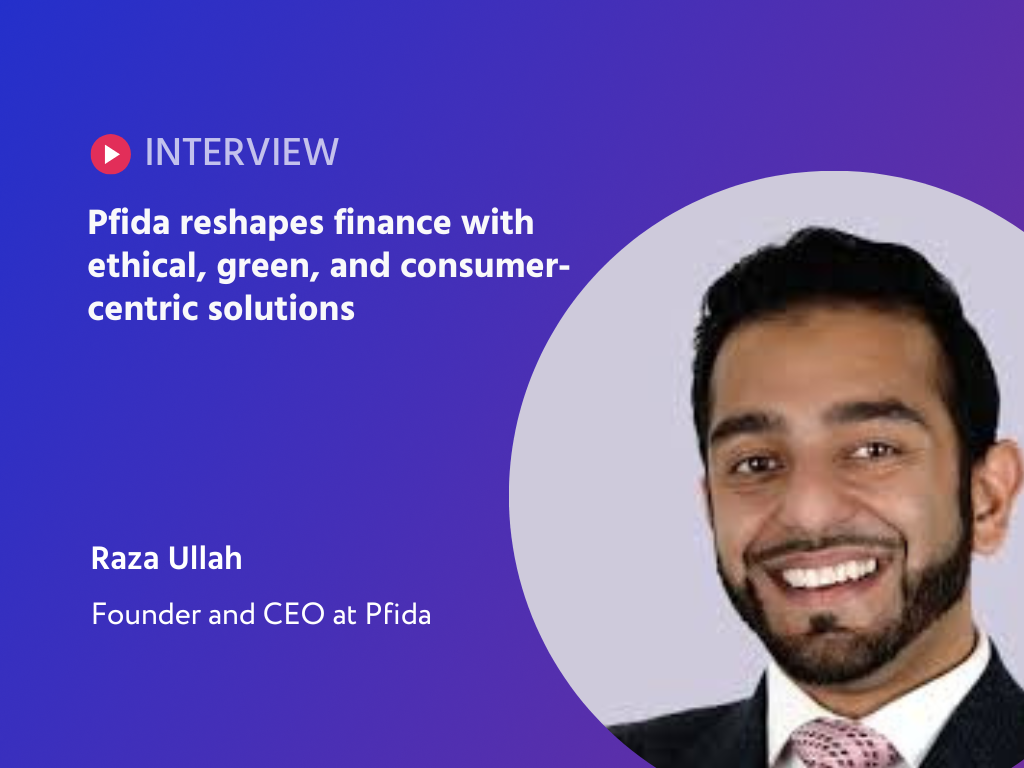In this insightful interview, we sit down with Brian Fabian Crain, Co-Founder and CEO of Chorus One, a leading company in the blockchain and cryptocurrency space. Brian’s journey is one of exploration, risk-taking, and unwavering dedication to the evolving world of crypto.
From his early fascination with Bitcoin in 2013 to his entrepreneurial endeavors, including the creation of one of the oldest crypto podcasts, Brian’s story provides valuable lessons for aspiring entrepreneurs. In this conversation, he shares his experiences, from his early life in Switzerland to launching Chorus One in 2018.
Brian delves into the importance of networking, the risks he took, and the significant lessons learned along the way. With a rich background in the crypto industry, his insights offer a glimpse into the challenges and rewards of building a startup in a rapidly changing market. Join us as we explore the world of blockchain innovation and entrepreneurship through the eyes of one of its leading figures.
Building Chorus One: The Risk, The Vision, and the Crypto Journey
Brian Fabian Crain’s journey into the world of cryptocurrency wasn’t exactly a straight line. From Switzerland to the US, then the UK, and Berlin, his quest for the right fit led him to an unexpected discovery in 2013—Bitcoin. This was no ordinary “aha” moment. Brian found himself captivated by the idea of blockchain and cryptocurrency, believing it was not just a passing trend but the future. It wasn’t long before he went all in on crypto, even starting one of the oldest crypto podcasts that continues to thrive with over 600 episodes. It was this deep dive into the crypto world that eventually led to the creation of Chorus One, the company that now dominates his professional life.
Like many entrepreneurs, Brian faced the age-old challenge of building a network from scratch. But he wasn’t starting from zero. Thanks to his podcast, which had already connected him with key figures in the crypto space, Brian had a head start. In fact, he believes that having a network, while not the only piece of the puzzle, can certainly give founders a leg up when starting a company. "It’s one of those things that just helps when you’re trying to grow something from the ground up," he shared. His podcast became a gateway to crucial partnerships and opportunities, giving him the connections that would later help propel Chorus One forward.
It’s one of those things that just helps when you’re trying to grow something from the ground up
Looking back on his journey, the biggest risk Brian took wasn’t in starting a company but in diving headfirst into the crypto world, long before it became mainstream. The initial years were financially uncertain, and there were moments when the future seemed bleak. But, as Brian points out, having a financial cushion gave him the flexibility to experiment without the pressure of immediate success. In his words, “I think it’s important to have a little bit of security to take those risks and experiment.” For Brian, the rewards of those early gambles weren’t just financial; they helped him learn, grow, and ultimately shape the future of Chorus One.
The Shifting Crypto Landscape: Regulation, Staking, and Decentralization
As the world of cryptocurrency continues to evolve, one aspect that has shaped how companies like Chorus One operate is the regulatory environment. In the relatively unregulated space of staking, which involves providing infrastructure for blockchain networks like Ethereum and Solana, Brian shares that while the industry remains largely free from regulation, it’s not without its challenges. Though staking itself hasn’t been heavily impacted by regulations, Chorus One must still adhere to compliance and security requirements when working with regulated companies. Brian notes, “Staking is still a pretty unregulated space, but we do have to consider compliance when working with partners.”
But beyond regulations, there are misconceptions about the role of staking and proof-of-stake networks that often confuse people outside the crypto industry. For many, the concept of staking can feel like simply earning interest on tokens, but it’s much more than that. Brian explains that staking is similar to the work of miners in Bitcoin. “We process transactions, create blocks, and secure these blockchains,” he explains. Essentially, staking helps crypto networks run smoothly, and it's this vital role that fuels the industry’s growth.
We process transactions, create blocks, and secure these blockchains
Looking forward, Brian points out that the U.S. continues to be a strong market for crypto, especially with the recent positive shift in regulations. But he also notes the surprising adoption of crypto in emerging markets. In countries like Argentina, Venezuela, and Turkey, where economic instability makes local currencies unreliable, stablecoins and crypto payments are gaining traction. It’s here, he says, that the true power of crypto is on display—offering people a way to protect their wealth and transact securely in unstable economies. As the crypto space continues to grow and change, Brian acknowledges that decentralization, once the foundation of the movement, is no longer as central as it once was. The industry is evolving, and the question now is: Does decentralization still matter as much as it used to?
Validators, Governance, and the Future of Crypto: Insights from Brian Fabian Crain
The role of validators in on-chain governance is a topic of much debate in the crypto world. Brian, with his vast experience across various networks, offers a balanced perspective. He shares that different blockchain networks take different approaches to governance. For example, Cosmos has a structured on-chain governance system, allowing token holders to vote directly on proposals. This transparent and deterministic system offers clear outcomes. “Validators can vote, and you know the outcome,” says Brian, emphasizing how this model helps move things forward. On the other hand, Ethereum’s more fluid governance process often involves endless debates, leaving the community uncertain about decisions. While some argue that this lack of clarity can hinder progress, others appreciate the flexibility it offers.
Validators can vote, and you know the outcome
Balancing neutrality with influence in such a system is no easy feat, but Brian and his team make it a point to act in the network's best interest. He admits that sometimes this even means voting against their own economic interests. This level of transparency and responsibility is crucial, especially when a company is deeply embedded in governance discussions. For Brian, the focus is on what’s best for the network, ensuring that their decisions reflect the long-term health of the ecosystem, not just short-term gains.
Looking ahead, Brian is particularly excited about the intersection of AI and crypto infrastructure. With the hurdles of scalability mostly behind us, the next big challenges are user experience and security. He envisions a future where AI could revolutionize how we interact with crypto, making transactions more accessible and user-friendly. He believes that AI-driven tools, such as transaction-creating chatbots, could simplify the process while improving security. “AI and crypto could dramatically scale usage and adoption,” Brian suggests, pointing to this as one of the most exciting areas in the industry. As the space continues to grow, innovations like these may be key to driving mainstream adoption.
The Road to Crypto Adoption: Brian Fabian Crain's Insights on Hurdles and Growth
When it comes to the biggest barrier to crypto adoption, Brian believes it’s not just about technology or regulation—it's generational. While younger people are embracing cryptocurrency, viewing it as more exciting and accessible than traditional investments like stocks, older generations remain skeptical. "As older generations pass on their wealth, crypto will naturally grow," Brian says, highlighting the crucial role of generational change in the mass adoption of crypto. But he also sees the role of platforms like Robinhood and Revolut, which make it easier than ever to access crypto, as a significant step in bridging the gap.
As older generations pass on their wealth, crypto will naturally grow
However, adoption isn’t just about getting people to buy crypto—it’s about finding real-world use cases. For Brian, the key to long-term success lies in building better user experiences outside of speculation. One intriguing example he mentions is PolyMarket, a prediction market that allowed users to bet on political events. It’s not only fun but offers real value by providing real-time insights into the odds of certain outcomes. "It’s a way to get a feel for the pulse of an event without all the noise," Brian says. For him, this intersection of speculation and utility is a glimpse into what the future of crypto could look like—useful and engaging beyond just trading coins.
Looking back on his own entrepreneurial journey, Brian offers some hard-learned lessons for anyone looking to start their own venture. He points out the importance of focus—something that was a challenge for Chorus One in its early days. “We wasted so much energy exploring other ideas when we should have focused solely on the main one,” he admits. For Brian, the most important advice is to explore initially, but once you find the right path, commit to it fully. He also emphasizes the importance of cutting losses quickly, whether it's a failed project or a team member not working out. "If something isn’t working, end it early," he advises, reflecting on how swift decisions can make a world of difference in a startup’s ability to pivot and grow.




